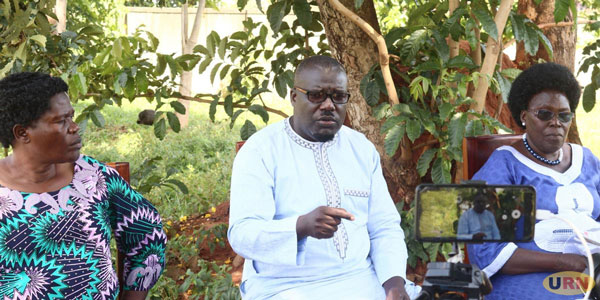
Gulu, Uganda | THE INDEPENDENT | The ongoing verification of cattle keepers commonly referred to as Balaalo in Acholi Sub-region has split legislators who meet under their umbrella body the Acholi Parliamentary Group (APG). A section oppose its execution.
The exercise is being spearheaded by a select committee comprising political and security leaders in the Acholi Sub-region led by Anthony Akol, the Kilak North Legislator who also doubles as the APG Chairperson. This comes a month after President Museveni postponed the implementation of Executive Order No 3 issued on May 19, 2023, for the eviction of the cattle keepers till September 30 pending their verification.
However, just a week into the verification exercise, which kicked off last week in Amuru district, a section of legislators from the Acholi Sub-region are opposing it and demanding a permanent halt.
Chua West legislator Philip Polly Okin Ojara said on Monday in Gulu City that the verification exercise shouldn’t have been undertaken since the President had earlier issued an executive order for the eviction of the herdsmen.
Okin accused his fellow legislators leading the verification exercise of misleading the Chief Coordinator of Operation Wealth Creation (OWC) Gen. Salim Saleh to advise the President to temporarily rescind Executive Order No 3.
Betty Aol Ocan, the Gulu City Woman Legislator notes that the APG Chairperson Anthony Akol didn’t formally inform them about the verification exercise adding that their opinion wasn’t also sought for its execution. Aol alleges that greed for money is already tearing away the leaders in Acholi, a situation that has left the fight against land grabbing and evicting Balaalo nearly impossible.
But Akol told journalists yesterday at a press briefing that the exercise is crucial in understanding the exact numbers of cattle keepers, their identities, location, and details of land transactions for easy implementation of eviction. He says whereas the verification exercise in other regions had been concluded, the magnitude of work in the region is enormous and notes that the committee has been added two more weeks to conclude their work.
Akol says key findings on the ground show a sudden shift in land ownership in the region with the majority of land that used to be communally owned now being owned individually. According to Akol, the change in the status of the land is brewing the massive fraudulent sales of land to the cattle keepers and fueling conflicts in the community.
Martin Ojara Mapenduzi, the Gulu City West Legislator notes that the verification of the cattle keepers is intended to unearth a detailed report on the existence of illegal cattle keepers in the region. He says the exercise isn’t targeting a particular tribe adding that those found to be having the right documents will not be evicted.
The legislators have also raised concerns over the growing population of illegal cattle keepers on government lands in the region. For instance, they cited that parts of the land acquired by the government for the establishment of the Amuru Sugar Works Factory by the Madhvani Group of Companies in Lakang Sub-county, Amuru district are currently being used for rearing cattle.
The committee on the verification of the cattle keepers after the two weeks exercise is expected to hand over the report and recommendation to the State Minister for Northern Uganda Rehabilitation Grace Kwiyucwyiny. According to recent verification reports, an estimated 2,000 cattle keepers the majority from Western Uganda are currently occupying vast chunks of land for cattle fattening in the districts of Gulu, Amuru, and Nwoya. Unofficial statistics also indicate the region has an estimated 40,000 herds of cattle being fattened in various farms belonging to the cattle keepers.
****
URN
 The Independent Uganda: You get the Truth we Pay the Price
The Independent Uganda: You get the Truth we Pay the Price





